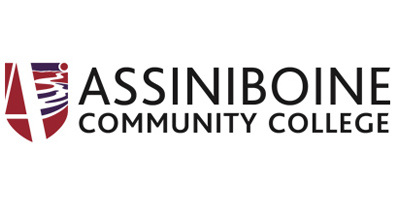Training apprentices in the skilled trades is crucial to passing on valuable knowledge and skills to the next generation. It is important to develop a training plan for each new apprentice that outlines the Red Seal skills they need the and the tasks they will be expected to complete in their role as a tradesperson.
Investing in your team can be viewed as expensive, but it is an investment in your company. Use a variety of training methods to cater to different learning styles. Some apprentices may need to watch the journeyperson do the same task once, and some may need to see it many times to feel comfortable with the new skill they are learning.
What you can do:
- Use a skilled trades skills assessment to understand the apprentice’s basic knowledge, skills, and competence.
- Encourage employees to perform tasks as they learn them. Repetition is an important factor in the retention of the training.
- Establish clear goals and milestones and track the apprentice’s progress regularly.
- Review the apprentice’s logbook with your apprentice regularly to keep track of the skills achieved.
- Recognize the power dynamics that may exist between a journeyperson and an apprentice. Ensure that these team members have training in inclusive workplace practices to be self-aware of unconscious bias.
Tips for Inclusive Training
Learning Styles
Remember that people learn differently, so it is important to use various training methods. These could include hands-on training, classroom instruction, online learning, and on-the-job training. Encourage the apprentice to learn by doing, allowing them to practice their skills and receive feedback from their journeyperson.
Essential Skills
Skills such as reading, numeracy, document use, and working with others are essential to succeed in apprenticeship training and the workplace. These skills are needed for work, learning, and life. They are used in nearly every job and at different levels of complexity.
Provide opportunities to identify essential skills and how they are used in the trades.
Trust and Rapport
Building trust and rapport with team members from equity-deserving backgrounds is essential. Listen to their concerns, show empathy, and respect their experiences and perspectives. A safe and welcoming environment is crucial for effective training.
Inclusive Language
Using inclusive language is important for creating a sense of belonging on the job site. It’s essential to avoid language that may be discriminatory or offensive and instead use language that is inclusive and respectful of all group members.
Provide relevant examples that relate to the experiences, help engage the group, and make the training more relevant and meaningful. Incorporating case studies or real-life examples can also help to bring the training to life.
Accessibility
Ensure the training is accessible to all group members, regardless of mental health, physical, or cognitive limitations. Support your apprentice’s accessibility needs by providing accommodations such as sign language interpreters, captioning, or assistive technology.
Recognizing Power Dynamics
Recognizing, reflecting and addressing power dynamics between the trainer and the apprentice is essential. It may involve acknowledging and discussing the trainer’s privileges and their impact on the training process. Additionally, it’s important to ensure that your team members feel empowered and that their voices are heard throughout the training.
Frequently Asked Questions When Training Diverse Apprentices
How can I improve the relationship between my older journeypersons and the younger apprentices? They cannot seem to agree on anything.
Intergenerational training of apprentices, where experienced journeypersons from older generations mentor younger apprentices, can be challenging due to the generation gap. Different generations often have distinct communication styles, work preferences, and attitudes toward work. You need to recognize and address generational differences through open dialogue, cultural awareness training, and fostering a culture of mutual respect and understanding, as the benefits of apprenticeship training provide an opportunity for experienced workers to pass on their knowledge, skills, and wisdom to the next generation. The journeyperson may need specific training to facilitate knowledge transfer and effective mentoring techniques. Encouraging the acceptance of diverse perspectives is the most important thing you can do to support this important relationship in your workplace.
I recently hired a woman welding apprentice, and the men on my crew are bullying her. Her skills are strong; I do not want to lose this apprentice. What should I do?
Here are some steps to take immediately:
- Address the bullying behaviour, talk to the individuals involved, and clarify that such behaviour is unacceptable and will not be tolerated on your job sites.
- Ensure there is a safe and confidential way for employees to report instances of bullying or harassment. Encourage your apprentice and other team members to report any incidents or concerns they may have.
- Conduct a thorough investigation into the bullying incidents. Speak to the individuals involved, as well as any witnesses, to gather as much information as possible. Assure your apprentice that her concerns are taken seriously, and that appropriate action will be taken.
- Offer support to your apprentice by listening to her concerns and reassuring her that her skills are valued and that she is a valuable team member.
- You must lead by example and treat all employees and apprentices with respect and fairness.
My new apprentice does not read English and put himself into a dangerous situation last week. What can I do to ensure safety on my work sites?
Safety is a shared responsibility, and it is essential to prioritize clear communication and understanding, regardless of language barriers. By implementing some simple measures, you can enhance safety on your work sites:
- Use safety training materials and instructions to be provided in the languages your workers speak.
- Use visual aids for safety demonstrations.
- Simplify safety instructions and implement visual safety reminders.
- Pair the new apprentice with a journeyperson who speaks their native language if possible.
How do I get my new apprentice to show up on time? He has been late every day this week!
You will need to communicate your expectations regarding punctuality to your apprentice. Ensure he understands the importance of being on time and its impact on the overall operations of the team and project. You will need to understand if there are underlying factors causing the consistent tardiness, such as transportation issues, personal challenges, or lack of awareness about the importance of punctuality. Approach this conversation with empathy and openness to identify potential solutions.
If there are underlying issues causing the lateness, work with your apprentice to find practical solutions. For example, if transportation is a problem, explore alternatives such as carpooling, public transportation options, or adjusting work schedules to accommodate their needs.
Even after diversity training, my crew continues to use racial slurs and tell inappropriate jokes in front of the new apprentices. I do not know how to get them to stop. What can I do?
Reinforce the importance of diversity and inclusion through ongoing communication, training, and educational initiatives. Regularly remind your crew of your expectations and the consequences when they continue to demonstrate disrespectful behaviour.
Offer support to the new apprentices who are subjected to inappropriate behaviour. Assuring their well-being is a priority, and their concerns will be addressed. Guide how they can report incidents and encourage them to reach out if they require any assistance or support.
Addressing these issues requires strong leadership, consistent enforcement of policies, and a commitment to creating an inclusive work environment. By taking proactive measures, you can send a clear message that discriminatory behaviour will not be tolerated and foster a more respectful and inclusive culture within your crew.









